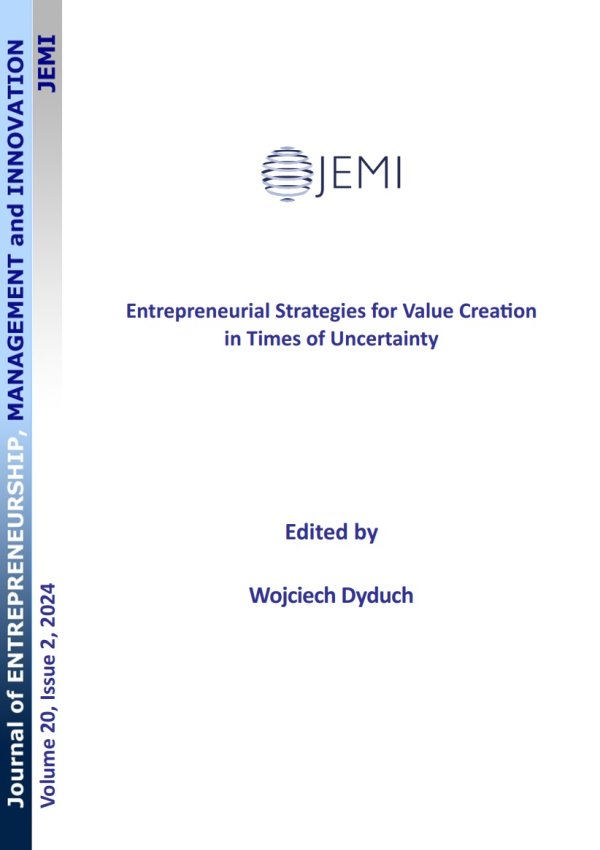Milena Ratajczak-Mrozek - Poznań University of Economics and Business, Poland and Tibor Mandjak, EM Normandie, Le Havre, France
Central and Eastern Europe (CEE) region includes countries which underwent economic transformation. This, among other factors such as location and cultural similarities, in turn results in regional specifics which is a subject of numerous research at the macroeconomic level regarding country and regional studies (e.g. Koźmiński, Yip (Eds.), 2000; Edwards et al., 2005; Schuh, 2012 and some academic journals as Economics of Transition or Post-Communist Economies). However there is a question if and how this regional specifics translates into managerial one and how this regional context affects companies’ growth, development and sources of competitive advantage. Our knowledge on managerial problems that are unique for the CEE region is still fragmentised (e.g. Chadraba, Springer (Eds.), 2008; Marinov, Marinova (Eds.), 2011; Marinov, Marinova (Eds.), 2013). Here mainly the perspective of multinational companies and foreign investors is underlined (e.g. Roderick, 1999; Koźmiński, Yip (Eds.), 2000; Schuh, 2012). We believe that the development, internationalisation and related managerial issues are particular for this region and still different than in other countries, especially because of the cultural context. The question is how this cultural context does effect companies and especially business relationship management? Moreover, despite of the common name for the whole region one must remember about its heterogeneity, there are economic and structural differences and resulting problems among these countries which should be taken into consideration. Just as one have to remember about the potentially different assessment of the management specifics made by foreign investors (from CEE and other countries) versus managers from companies originating from the CEE region. Other interesting issue could be the evolution of local and regional business networks that support companies’ growth. And finally, we want to ask if the companies originating from this region or investing in this region faced with more opportunities or threats and how to exploit this potential.
Research topics include among others:
- Specifics and problems concerned with management of companies from CEE countries.
- The influence of the transition process on the managerial practice.
- The impact of cultural context on companies from the CEE region.
- The local, regional or global specifics of small companies from the region.
- Internationalisation of companies from CEE countries.
- Foreign investors in CEE countries – managerial perspective.
- CEE region and its specifics as a source of companies’ growth, development and competitive advantage.
- Local and regional business networks that support companies’ growth.
- Similarities and differences of business relationships between companies from the region and Western, regional and local partners.
- The influence of relations between the political and business networks on companies’ growth and strategies.
Paper submission:
Papers should be submitted before the end of May 31, 2018 to JEMI, at: This email address is being protected from spambots. You need JavaScript enabled to view it.. They must be in sufficient detail for the referees to judge their meaning and value. Submissions must be in English, should normally be no more than 15 pages in length (up to 8,000 words), and follow the submission requirements posted on the JEMI website at http://jemi.edu.pl/submission-and-policy Notifications of acceptance/rejection will be sent to authors within three months.
References:
- Chadraba, P.G., Springer R. (Eds.). (2008). Business Strategies for Economies in Transition: Book of Readings on CEE Countries. Cambridge: Cambridge Scholars Publishing.
- Edwards, V., Polonsky, G., Pucko, D., Warner, M., & Zhu, Y., (2005). Management in Transitional Economies: From the Berlin Wall to the Great Wall of China. USA: Routledge Curzon.
- Kozminski, A., & Yip, G. (Eds.). (2000). Strategies for Central and Eastern Europe. UK: Palgrave Macmillan.
- Marinov, M., & Marinova, S. (Eds.) (2011). The Changing Nature of Doing Business in Transition Economies. UK: Palgrave Macmillan.
- Marinov, M., & Marinova, S. (Eds.) (2013). Emerging Economies and Firms in the Global Crisis. UK: Palgrave Macmillan.
- Meyer K.E. (2006). Process perspectives in international business research in CEE. Management International Review, 46(2), 143-164.
- Roderick, M. (1999). Transforming Management in Central and Eastern Europe. Oxford: Oxford University Press.
- Schuh, A. (2012). Strategic Responses to the Global Financial and Economic Crisis in Central and Eastern Europe – The Foreign Multinational Company Perspective. In: R. Van Tulder, A. Verbeke & L. Voinea (Eds.). New Policy Challenges for European Multinationals (Progress in International Business Research, Volume 7, pp. 393-419).






